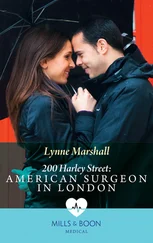The intransigent enemy is often a friend who wordlessly turns, embroidering insult upon insult and calumny upon calumny within himself or herself, while the other is unaware of these rank occurrences, and so the former, though still-present friend, an incipient enemy, acts against the unknowing one, cannily, all the while pretending to friendship but causing damage and havoc, and only in retrospect, which is dumb wisdom, does the friend realize the existence of an enemy, whose enmity lasts a lifetime but which has come about slowly and stealthily in the darkly benign nights of supposed friendship. I have had several episodes in which I wandered, without presence of mind, into enemy territory, imagining I was among friends, and sometimes it was I who may have provoked or caused the rift, without knowing I did, and sometimes whoever I am or was was not the cause of the hatred, since its origin belonged within the friend, to whom I, the other, am nothing more than a suitable object. One such friend, someone I liked but didn't know long, to whom I was indifferent for a period of time, unaware of her growing anguish in a time of my own trouble, disappeared, not only from my view but from others', and when I searched for her, but could not locate her, but then finally did, she would have nothing to do with me. I expect I am an enemy of hers now, while she will always be someone I like whom I may have hurt inadvertently, and those are the saddest enemies to have. Although, since I didn't know her well, she may be a shallow, thick-skinned, insensitive character, an opportunist or someone so damaged as to be incapable of love and compassion. The saddest enemy is her kind, and I don't want to dwell on it, so I never mention her, because for one thing she was never vital to my life, and also it's usually better not to say anything, especially about subjects plagued by illegibility.
When I first arrived here, in a voluntary manner but wearily, as I had little hope, a woman inquired in the main hall, right upon meeting me, at what hour did I regularly awaken, and I felt alarm. I didn't understand why she needed to know, of what moment my rising was to her, but she explained she was only curious. I wasn't curious about when she awakened, though I have curiosity about many things, so I thought, quickly, my stomach slightly upset, as I have a nervous stomach, since the stomach is a second heart I was told by a Greek therapeutic cosmetician, there might be a problem. She might be a potential enemy to my sleep or even to my being, though this seemed farfetched, but it would be a miracle to arrive somewhere and find no problem or obstacle. It would have been a miracle if the girl in the camp infirmary, who was not allowed medicine to cure her, because of her parents' religion, grew up and lived a blissful life. When I was nearly six, walking past the infirmary on the way to the cafeteria, I wanted to visit her, to go to her bedside and comfort her, or at least see her, though I was afraid I might become sick and die as soon as I entered the infirmary. I feared also that I might encounter her religious parents who were depriving her of medicine, maybe even killing her. She might have survived the summer, and, if she did, people could say it was a miracle, God's work, and be thankful, though by now she might know how close she came to dying and blame her parents for endangering her welfare, and have nothing to do with the stern people who gave her life and then played dice with it. Or, she might believe in miracles and love her parents and the religion into which was born about which she had no choice, no one has a choice about the most crucial things in life, though maybe she doesn't object to her fate.
I didn't have a choice about many things, but I disdain all forms of religion, and I have always been allowed medicine. I suffered many sore throats when I was a child, so the family doctor visited often, with his black bag, the kind of hag I haven't seen in ages that now becomes a happy image from a bad or an unhappy time and childhood, but at that time I didn't want to see the bag or the doctor and didn't want shots of penicillin, a wonder drug then. I remember appreciating its magic before he injected me, that soon I would be well because it was a wonder drug, and, while my mother looked on with her discerning, critical eye, I took the shot, the doctor promising once he was using a new kind of needle, a rubber needle, which would be painless, he said, and which I believed, because I trusted the doctor, and afterward, having felt the needle's sharp point penetrate my sensitive skin, though it's less sensitive on the ass than on the face, I was disillusioned. I spent many weeks in bed every winter, drawing, reading, listening to the radio, watching TV, or sleeping, while my infected tonsils ached and my schoolmates played. But I never thought of myself as sick, my parents were never sick, and they didn't think of themselves as sick, though today, because of greater sensitivity, many people consider themselves sick, at risk, or threatened.
As I entered the dining room on my first morning in this institution, when time seemed elastic, a ripple of interest from the others, as well as a rustle of discontent, directed at an unknown, intrusive object, which was my person, broke like waves at my feet. But the ocean, even in winter, was warmer, certainly neutral, and though its waves also alarmed me, so wild yet regular and implacable in their movement to the shore and then back to the sea, I wasn't entirely discomforted, since I was told the ocean's movement was natural and it was clear it had nothing to do with me. It was a place and world I couldn't know whose momentum would always be indifferent to my own, but whose majestic forces could swallow me easily. Still, the waves and ocean caused a profound contentment, probably because my father was beside me, happy in this setting, when often he wasn't happy, because business was bad, or he was anguished, suffering a distress whose origin he himself didn't know, couldn't subdue, and that didn't abate.
Around and before me, in this setting, a dining room, were human waves of inchoate, indeterminate feeling and emotion, which I wasn't supposed to respond to, and to which I didn't, since I understood my place as a newcomer, an animal who might be a threat, and knew it would not be in my interest to arouse undue suspicion. It was the end of breakfast. I was immediately shown into the kitchen to meet the cook, and assistant cook, I believe, and her helpers, college and high school age students, who greeted newcomers pleasantly but awkwardly, and who were themselves somewhat glum or circumspect, though everyone who works here is expected to behave judiciously and be friendly to visitors and residents. One night, when it was very late and no one else was around, when I was restless, reading the town's newspaper, unconsciously looking for something, one of the helpers, a girl of seventeen, advanced with several of her friends into the main room. They squealed with delight at their transgression. The incursion was prohibited to her and her friends, but it was she who did it arrogantly, with a certain disdain for me, when she spied me. She guffawed triumphantly, and stared at me, daring me to object, but I closed my hook and turned down my lips, to indicate my displeasure as well as the fact that she was in danger, endangering me, also, since my peace of mind could be altered, when I'm supposed to be calm here, and shortly afterward, they left the dark brown wood room. Later, there was an awkwardness when she was in the kitchen and I entered, it was a slight obstacle that ruffled my composure, since she and I were expected to know our places and respect them, but I never spoke of her infraction.
First, the assistant cook wanted to know what I could and absolutely wouldn't eat, and, as I wrote this down on a blue-lined index card, I was conscious of impinging on her time. Then the head cook, who immediately knew what was occurring, as it had again and again with every new resident, she had been the head cook for years, walked into her kitchen, and I saw that her pale forehead creased, her blue eyes receded under eggshell-hooded eyelids, and her head angled toward the low ceiling, which hung over all of our heads. Fearing her boredom or weariness in this repetitious event, I wrote quickly that I ate everything in moderation, except octopus and Jell-O, that I liked greens, fruit, cottage cheese, cheeses, generally, though I wanted to avoid fats and some carbohydrates, ate fish and beef, chicken, didn't like fried foods, and when the assistant cook handed the head cook my list, she read it and nodded but didn't look at me. Instead, the head cook warned, her back turned to me as she fastened her gaze upon tomatoes meant presumably for slicing or chopping, that if I were late for breakfast, I wouldn't be served, though there would be dry cereals out on a table for a while after the breakfast hour had officially ended, which pleased me, though I don't often eat dry cereal, yet I felt, in a pinch, I could.
Читать дальше












